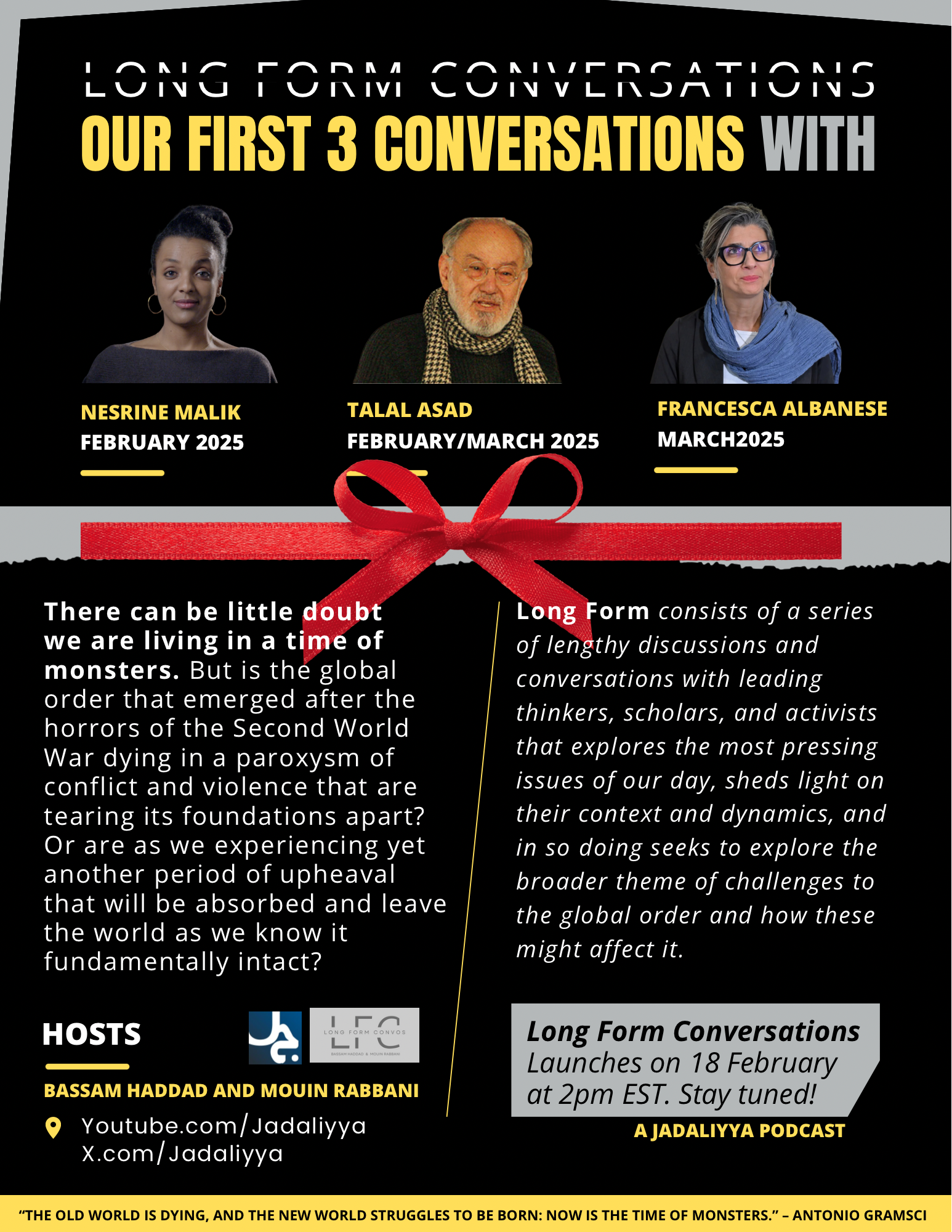Announcing the Long Form Podcast
with Bassam Haddad and Mouin Rabbani
Episode 1: In Conversation with Nesrine Malik
18 February, 2025 | 2 PM EST
Episode 2: In Conversation with Talal Asad
Episode 3: In Conversation with Francesca Albanese
There can be little doubt we are living in a time of monsters. But is the global order that emerged after the horrors of the Second World War dying in a paroxysm of conflict and violence that are tearing its foundations apart? Or are as we experiencing yet another period of upheaval that will be absorbed and leave the world as we know it fundamentally intact?
Long Form consists of a series of lengthy discussions and conversations with leading thinkers, scholars, and activists that explores the most pressing issues of our day, sheds light on their context and dynamics, and in so doing seeks to explore the broader theme of challenges to the global order and how these might affect it.

Featuring
Bassam Haddad is Founding Director of the Middle East and Islamic Studies Program and Associate Professor at the Schar School of Policy and Government at George Mason University. He is the author of Business Networks in Syria: The Political Economy of Authoritarian Resilience (Stanford University Press, 2011) and co-editor of A Critical Political Economy of the Middle East (Stanford University Press, 2021). Bassam is Co-Founder/Editor of Jadaliyya Ezine and Executive Director of the Arab Studies Institute. He serves as Founding Editor of the Arab Studies Journal and the Knowledge Production Project. He is co-producer/director of the award-winning documentary film, About Baghdad, and director of the acclaimed series Arabs and Terrorism. Bassam serves on the Board of the Arab Council for the Social Sciences and is Executive Producer of Status Audio Magazine and Director of the Middle East Studies Pedagogy Initiative (MESPI). He received MESA's Jere L. Bacharach Service Award in 2017 for his service to the profession. Currently, Bassam is working on his second Syria book titled Understanding the Syrian Calamity: Regime, Opposition, Outsiders (forthcoming, Stanford University Press).
Mouin Rabbani is a researcher, analyst, and commentator specialising in Palestinian affairs, the Arab-Israeli conflict, and the contemporary Middle East. He has among other positions previously served as Principal Political Affairs Officer with the Office of the UN Special Envoy for Syria, Head of Middle East with the Martti Ahtisaari Peace Foundation, and Senior Middle East Analyst and Special Advisor on Israel-Palestine with the International Crisis Group. Rabbani is Co-Editor of Jadaliyya, and a Contributing Editor of Middle East Report
